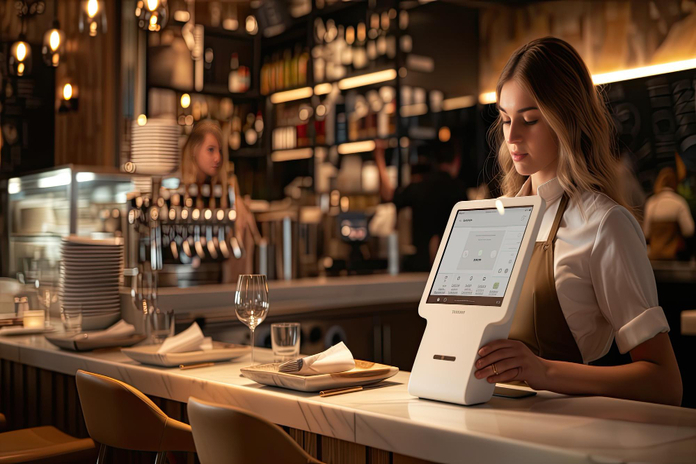In the ever-evolving world of restaurant technology, Ben Leventhal, a pioneer of foodie culture and technology-driven dining experiences, is leading the way with his latest project: Blackbird Labs. Blackbird is revolutionizing restaurant loyalty programs by integrating cryptocurrency into the dining experience, giving restaurants a new approach to rewarding their most loyal customers. With the app almost a year old, it’s clear that this innovative platform is making waves in the restaurant industry.
The development of loyalty programs in the hospitality industry
Leventhal’s journey in the food and technology industries has been marked by significant milestones. After co-founding Eater and Resy, platforms that changed the way people discover and make reservations for restaurants, he is now focused on transforming restaurant loyalty programs with Blackbird Labs. The app uses cryptocurrency, specifically $FLY tokens, to reward diners who frequently visit participating restaurants.
Blackbird’s approach is simple yet innovative: guests receive $FLY tokens every time they visit a restaurant that partners with the app. These tokens are more than just points – they represent a new way to engage with restaurants and receive perks like free dishes, welcome drinks, and access to exclusive reservations. This system not only encourages repeat visits, but also keeps customers in the restaurant ecosystem, potentially encouraging long-term loyalty.
The power of blockchain in loyalty programs
At the heart of the Blackbird restaurant loyalty program is blockchain technology. Transactions involving $FLY tokens are recorded on Base, a Layer 2 blockchain developed by Coinbase (NASDAQ:COIN) that is designed to reduce transaction costs on the Ethereum blockchain. While most restaurant guests may not care about the intricacies of blockchain, the technology ensures that their rewards are securely tracked and redeemed.
The use of blockchain also allows restaurants to share customer data and create a universal currency that can be used across multiple locations. This means guests can earn rewards at one restaurant and spend them at another, fostering a sense of community among participating establishments.
Real-world impact: Blackbird in action
One of the early adopters of Blackbird is Temple Bar, a historic eatery in NoHo, Manhattan. The bar’s use of Blackbird technology is subtle but powerful: Customers “check in” when they arrive by scanning a device that records their visit and spend. This data helps the restaurant personalize the dining experience and offer perks like the best table or a free drink to valuable customers.
Despite its innovative approach, Blackbird’s launch has been fraught with challenges. Some restaurant staff are still unfamiliar with the app, and its presence in certain locations may go unnoticed by casual diners. However, among the app’s users, feedback has been positive. Vance Spencer, co-founder of Framework Ventures, shared that he hasn’t had to pay for a coffee in months thanks to his accumulated $FLY tokens.
The path to adoption
For Blackbird to succeed, it needs to reach a critical mass of restaurants and diners. As of July, 0.6% of New York City restaurants were using the app, a tenfold increase over the past year. Leventhal is confident that once a certain threshold is reached, the app will gain significant traction and become a must-have for diners and restaurants.
Leventhal is also realistic about the appeal of crypto in the restaurant industry. He acknowledges that the blockchain aspect of Blackbird probably won’t be a big selling point for most restaurant guests. Instead, the focus remains on the rewards and enhanced dining experience the app offers. “Crypto people are just obsessed with putting the word ‘crypto’ in front of things,” Leventhal noted, emphasizing that the end-user experience is what really matters.
Maintaining value within the industry
At its core, Blackbird is more than just a loyalty program – it’s a vision to create a shared pool of capital that benefits the entire restaurant industry. By keeping $FLY tokens in the restaurant ecosystem, Blackbird encourages customers to spend their rewards on dining rather than spending outside of the restaurant. This approach aims to keep value within the industry and support the economic viability of participating restaurants.
Leventhal’s latest project challenges traditional notions of competition in the restaurant industry. By fostering a collaborative environment where restaurants support each other through shared loyalty programs, Blackbird is paving the way for a more sustainable and connected restaurant ecosystem.
Featured image: Freepik
Please note the disclaimer

